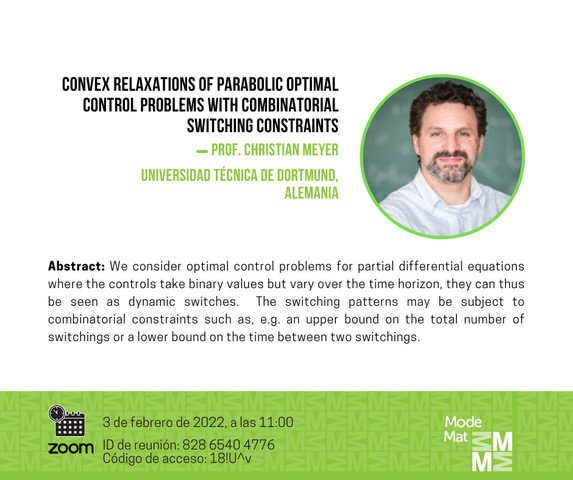
By Prof. Dr. Christian Meyer. Universidad Técnica de Dortmund
Fecha seminario: 2022-02-03
We consider optimal control problems for partial differential equations where the controls take binary values but vary over the time horizon, they can thus be seen as dynamic switches. The switching patterns may be subject to combinatorial constraints such as, e.g. an upper bound on the total number of switchings or a lower bound on the time between two switchings. While such combinatorial constraints are often seen as an additional complication that is treated in a heuristic postprocessing, the core of our approach is to investigate the convex hull of all feasible switching patterns in order to define a tight convex relaxation of the control problem. The convex relaxation is built by cutting planes derived from finite-dimensional projections, which can be studied by means of polyhedral combinatorics, and solved by an outer approximation algorithm. However, both the relaxation and the algorithm are independent of any fixed discretization and can thus be formulated in function space. Preliminary numerical results illustrate the efficiency of our approach.